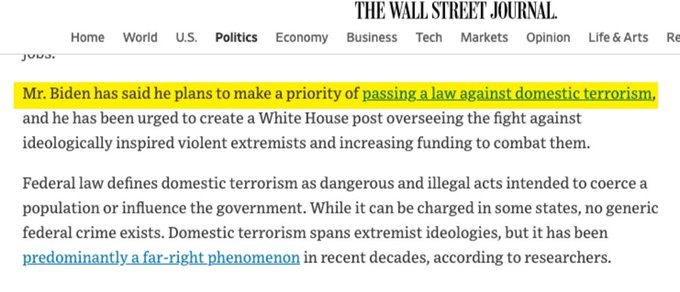In part from Breitbart:
Secretary of State Michael Pompeo warned lawmakers that the threat from the Chinese Communist Party is “inside the gates” during a meeting with House Republican lawmakers on Friday.
Pompeo told members of the conservative Republican Study Committee that as a former lawmaker, he is aware of the threat posed by China but that he did not appreciate “the scope and the scale and the nature” of how close the threat is until he became Central Intelligence Agency director.
This CCP infection inside the United States goes beyond Senator Feinstein, Congressman Eric Swalwell, former California Senator, Barbara Boxer or even closing the Chinese embassy in Houston. There is the Thousand Talents Program that has wormed it's way through academia and the Confucius Institutes.
How about a little known Florida congresswoman, Stephanie Murphy (D-FL)? She is quite dedicated to China due in part to her husband Sean and his manufacturing company, 3N2. His company produces sports equipment/apparel in China. Further, she advocates for all the democrat policy points including open-border policies and more studies into “gun-violence”. Crazy enough, Murphy actually joined a small group of Democrats in calling to remove tariffs on the Chinese government.
None of this is actually new when it comes to Stephanie Murphy, in fact it goes back as far as 2017. Did anyone notice?
When you are on social media, do you actually work hard to determine if you are being trolled by some foreign entity? We are quite aware of Russian disinformation but going back years, at least to 2016 (interesting year), China's own troll farm has been just as successful in the social media sphere and you are likely a victim. DC politicians are just as likely to be willing accomplices.
There is or was a Chinese operation called the 50-centers and you probably clicked on a lot of their social media posts.
The Left-leaning policy organization Foreign Policy published the following in 2016.
A May 17 paper written by professors at Harvard, Stanford, and the University of California, San Diego provides the most detailed and ambitious description of China’s 50-centers available to date. It confirms the existence of a “massive secret operation” in China pumping out an estimated 488 million fabricated social media posts per year, part of an effort to “regularly distract the public and change the subject” from any policy-related issues that threaten to anger citizens enough to turn them out onto the streets. But the research finds no evidence these 50-centers are, in fact, paid 50 cents, nor does it find they engage in direct and angry argument with their opponents. Instead, they are mostly bureaucrats already on the public payroll, responding to government directives at a time of heightened tension to flood social media with pro-government cheerleading.
Understanding the behavior of pro-government netizens is important, given the stakes. In the past two and a half years, the Chinese government has used a combination of muscle and guile to cow online opinion leaders into submission, muzzling social media as a political force, and leaching public dialogue of much of its independence. But beneath the peppy, pablum-filled surface that has resulted, Chinese social media remains a contested space. In countless online chat rooms, bulletin boards, and Weibo threads, Chinese social media roils with the same ideological debates that also increasingly consume Chinese academics and elites.
Broadly speaking, the clash pits so-called leftists — that is, conservatives and neo-Confucianists who marry stout Chinese nationalism, a yearning for reconstructed socialism, and the quest for a reversion to hierarchy and filial piety — against rightists, or reformists, who continue to espouse what a Westerner would recognize as universal values, such as civil and human rights, government transparency, and democracy and constitutionalism. It’s more common for the two camps to exchange barbs than ideas. The leftists label the rightists sellouts, turncoats, and “public intellectuals,” the latter delivered with an implicit sneer. The rightists often call the leftists “50-centers,” regardless of who really pays their bills.
What is worse is a separate issue known as the Chinese cyber-attacks. A for instance however:
More than two dozen universities in the United States and around the world were targeted as part of an effort by the People’s Liberation Army, the Chinese military, to build up its naval and submarine forces.
iDefense, one security firm, tracked the Chinese cyberattacks to a hacking group known variously as Temp.Periscope, Leviathan or Mudcarp. A second firm, FireEye, calls the hacking group APT40 or Temp.Periscope.
FireEye said the operations appear linked to Chinese activities in the South China Sea, where Beijing has built disputed islands and deployed advanced missiles on them beginning a year ago. The Chinese military hacker unit in charge of that region is the Chengdu-based Unit 78020.
The 27 universities included the University of Hawaii, the University of Washington and the Massachusetts Institute of Technology.
Take caution, judge slowly. Secretary of State Mike Pompeo is right.






 American intelligence officials say that Mr. al-Masri had been in Iran’s “custody” since 2003, but that he had been living freely in the Pasdaran district of Tehran, an upscale suburb, since at least 2015.
American intelligence officials say that Mr. al-Masri had been in Iran’s “custody” since 2003, but that he had been living freely in the Pasdaran district of Tehran, an upscale suburb, since at least 2015. 